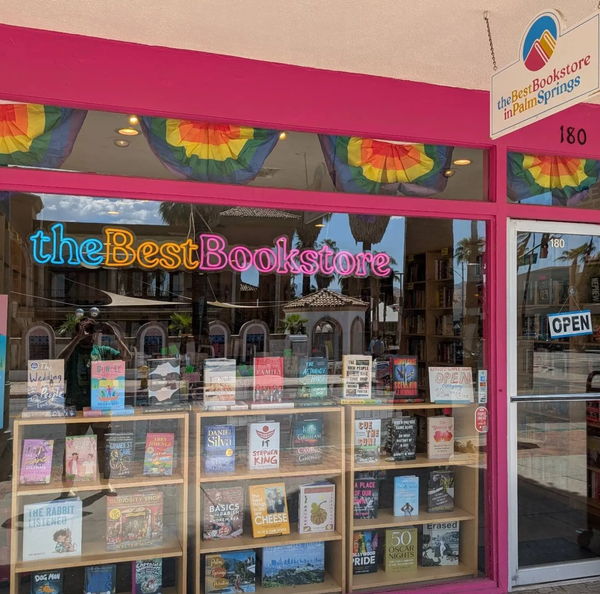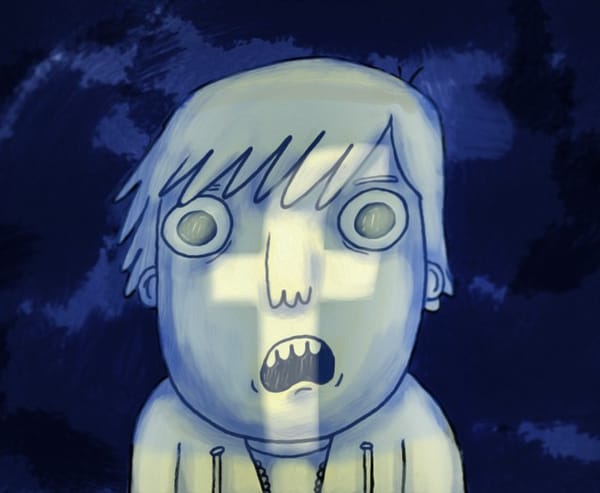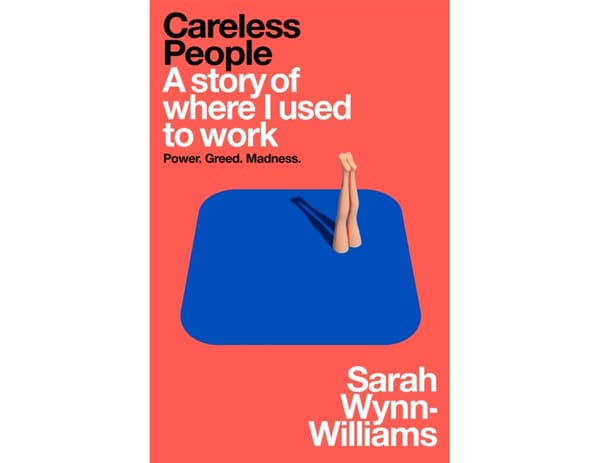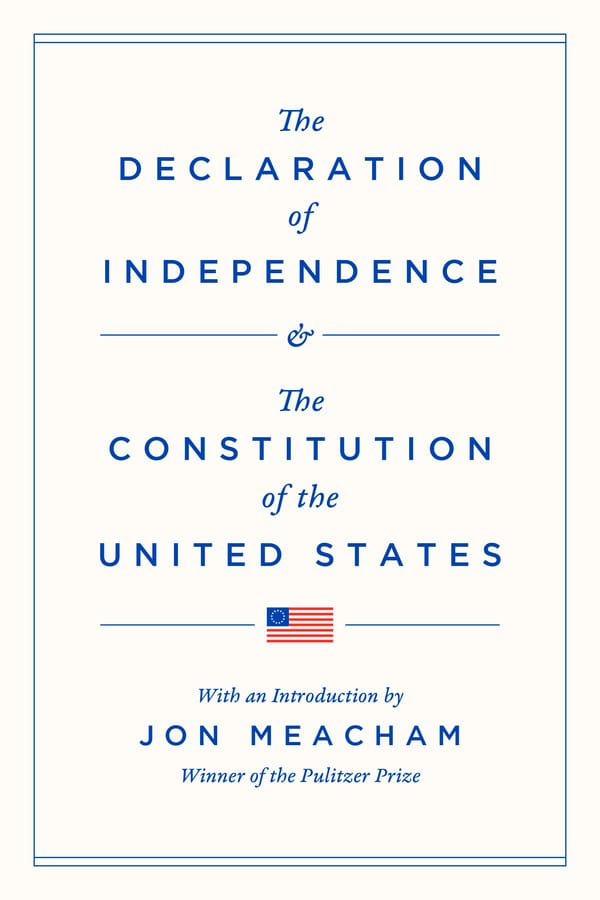How the sausage is sold
Every author should get the chance to sit in on a sales call to see how books are sold to bookstores.

One of my absolute favorite parts of being a bookseller is the sales calls.
Three times a year our sales reps from each of the Big Five publishers (Penguin Random House, Simon & Schuster, Hachette, Harper Collins, Macmillan) plus a handful of others like Scholastic, IPG, and Ingram, call or visit to tell me about all the exciting books they have coming up. It's like making a huge Christmas list, only much more expensive.
Generally, the sales push for each season comes about four or five months ahead of pub date. So, right now, I'm meeting with our reps to hear about books being published in Summer 2025.
But here's a funny thing: My book is being published in Summer 2025.
Which is why, a few days ago, I had the unusual experience of hearing Shannon, our fantastic Simon & Schuster rep, pitch me on why I should buy The Confessions for our store. (To be clear: Shannon is well aware it's my book - I just wanted to hear the pitch!)
And, of course, Shannon nailed it. The short version: The Confessions is the AI-adjacent thriller for people who hate reading about AI. It opens with millions of people receiving letters in the mail confessing their friends' darkest secrets. It features a former nun! Who is now a bookseller! It's "a dazzling high-concept thriller that is an intoxicating mix of Blake Crouch and The Chain."
It sounded great, so I ordered 300 copies. If the author is lucky, I might even put it in the window.
In all seriousness, I've long believed that every author should get the chance to sit in on a sales call to see how books are sold to bookstores. I suspect they would be in equal parts horrified and devastated.
By the time your book goes on sale with one of the Big Five, you have already won the lottery a dozen times. You've had a great idea for a book (hard), actually written the book (very, very hard), found an agent (unheard of), received an offer from a top tier publisher (impossible). Your agent loves the book, your editor looooves the book - the marketing team lies awake all night obsessing about the book and (so you're told) the sales team is convulsing with excitement to sell it. Perhaps your book has even been blessed with a "premium marketing campaign". Shit, one of your favorite authors has written a cover blurb. It's a tour de force. You are at the height of your powers. You are unputdownable.
Cut to.
The backroom of a bookstore. An exhausted bookseller perched on a pile of still-to-be-unpacked boxes, squinting into a Zoom. In the next window: The home screen of "Edelweiss", the online tool that publishers use to share their catalogs and book recommendations with booksellers.
Some small talk as the bookseller clicks to the right catalogue. Simon & Schuster Adult Summer 2025, let's say. The bookseller glance at the number of titles to be considered this season... 296.
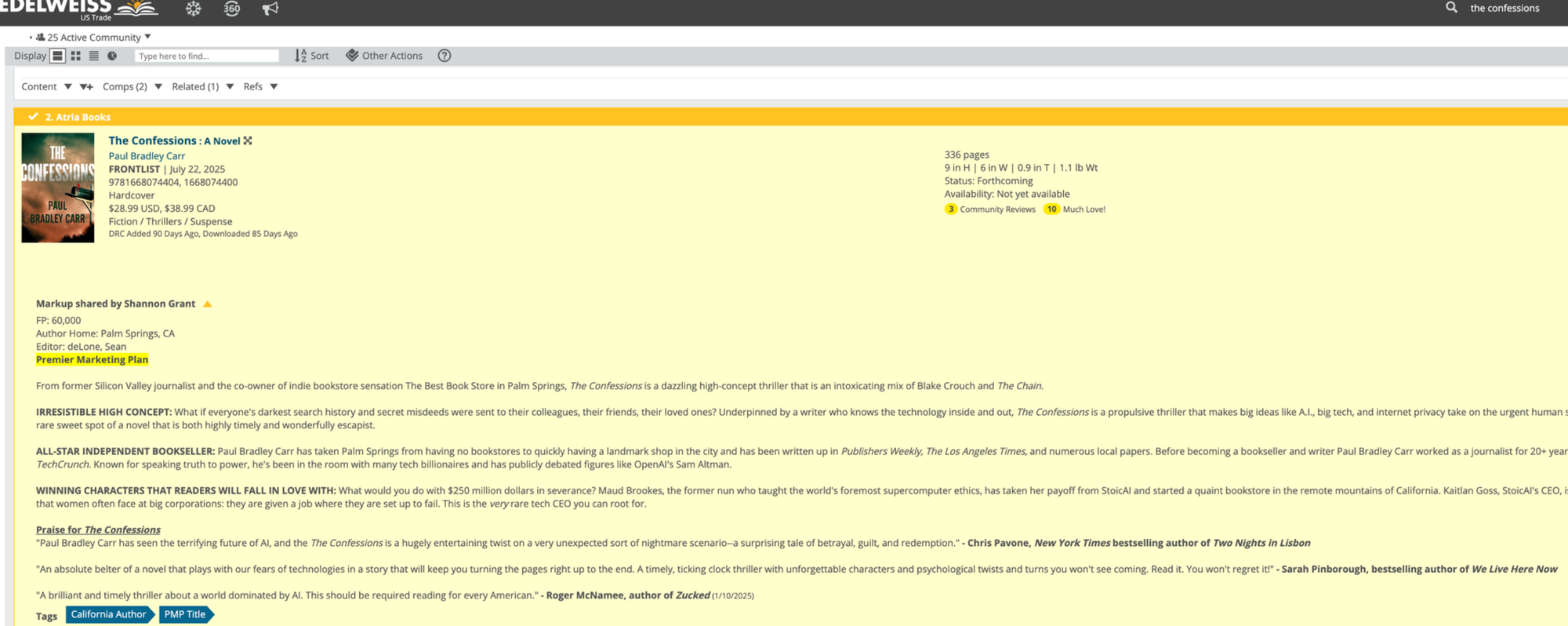
Now... if the publisher (and their authors) are lucky, the bookseller has done their homework and read through the list in advance. Maybe they've also clicked on the children's catalogue (another 350 titles) and the two catalogues of adult and children's titles that are distributed (but not published) by Simon and Schuster (another 1000 titles).
Maybe they've carefully considered every single of these 1600 or so individual, fantastic books.... each with its own lottery winning author, and an obsessed agent, and a marketing team in paroxysms. Maybe they already received an advance reader copy of one or two of the books, or they follow a couple of the authors on social media. Maybe all of this has helped them craft an order featuring truly the very best books that Simon & Schuster has to offer that season.
Maybe.
But just as likely, especially for a store without a dedicated buyer? Our overworked bookseller clicks on one of the handy little check-boxes next to the list of titles; the one marked "highlighted" or "suggested", which filters out all but the 80-100 titles that the rep is particularly excited to talk about.
Because who the hell has time to browse 1600 books?
And when they click that little box... poof! More than 1000 titles vanish into air. A thousand authors' hopes and dreams removed from consideration. Not because they're not great stories (publishers wouldn't be publishing them otherwise) but because booksellers are chronically overworked and, even if they carefully consider each book for just 30 seconds, that's still almost an hour's work just to appraise those 100. To consider them all? 13 hours.
So we're down to 80 highlighted books, of which maybe the sales rep has time to properly discuss ten or twenty during their one hour call.
The small talk concluded, the 30 second pitches begin. Our bookseller adds a couple of copies of this book to the order in progress, maybe five of that. The rep pushes gently back – "if you buy 10 we're offering signed copies!" So the bookseller adds a few more of that one, but fewer of the next. Bookselling is hard. Shelf space is finite. Publisher credit limits are real.
If this bookstore is in Palm Springs, sales slow dramatically in the 120 degree summer heat. That thriller sounds really interesting but will the hardcover be too heavy for folks to read in the pool in July? Should I wait for the paperback? No, the rep says firmly, you're definitely going to want this one.
Ok, fine. Sold. What's next?
And that's what it looks like when the sales team are excited about your book, when the rep and the bookseller both do their job exactly right. You survive the check box. You get a quick pitch. A shot.
And, did I mention, Simon and Schuster is one of the smaller of the Big Five? Penguin Random House publishes some 15,000 titles a year. Once you include the smaller and independent houses, the total number of titles traditionally published (that is, not self-published) in the US is about half a million.
Truly, how many of those do you think booksellers ever hear about?
A thousand? Two thousand? Five thousand?
And, of those, how many do you think we can order for our store, while also leaving room for the Grishams, and Christies, and Gladwells, and Atwoods, and Allendes, and Moriartys, and Isaacson, and Dahl's, and.... and... you get the point.
I just checked and, from those 1600 S&S books this season, I ended up ordering about 150 new titles for our store. I'll likely order about the same number from Hachette and Harper, maybe 300 or so from across all of Penguin's gazillion imprints, and far fewer from Macmillan because their books are really good but they're such a pain in the ass when it comes to offering credit.
Of those, maybe 5% won't actually make it to the store in time for pub day because we've maxed out our credit with Penguin that month ordering books for an event, or Macmillan forgets to ship a box, or UPS damages a Harper shipment in transit. Maybe I'll remember how much I loved the sound of your book and put in a rush order with Ingram, or maybe I'll have flu.
Maybe the book arrives but the cover is slightly wrong for the market. Or there's an election. Or a trade war. Or Rebecca Yarros has dropped a new surprise dragon book on the same day as your romantacy debut.
And just like that, your book launch has come and gone. Dream, meet reality.
I say all of this not to put anyone off writing or getting published. There are of course countless examples of books blowing up on TikTok or getting mentioned by Oprah or featured on NPR and of booksellers scrambling to re-order. Hurried reprints! Red faces all around!
Rather I wish authors could see the sales process because then they'd understand what publisher excitement actually looks like from a bookseller point of view, and the countless reasons why they might not find their debut novel on bookstore shelves on publication day. And why, statistically speaking, most books published in America each year sell only a handful of copies.
And more importantly: Why almost none of those reasons have anything at all to do with the actual quality of your book.
When The Confessions comes out in July, I'm obviously hoping it'll defy the odds and be a smash hit. I worked my ass off to write the very best thriller I could possibly write. I think it's pretty damn good. Sarah Pinborough called it "an absolute belter of a novel". Roger McNamee - Mark Zuckerberg's former mentor and author of Zucked said it (I quote) "should be required reading for every American." Fuck, I have great blurbs. A premium marketing campaign too! Add to that my bookstore with a big fat mailing list and a bunch of Instagram followers.
Of course I'm dreaming of seeing my cover staring back through the windows of bookstores coast-to-coast. Of making the New York Times bestseller list, or being the toast of Booktok. Who wouldn't have such dreams?
But dreams and three dollars will buy you a bookmark.
Thanks to my new career as a bookseller, I understand all the things that will need to happen for just one bookseller to order just one copy of The Confessions. And then for just one reader to pick it up and take it to the counter.
Ding! One sale!
Every book that makes it to a bookstore shelf is a gigantic vote of confidence in an author. And every sale is like winning a lottery, inside a lottery, inside a lottery, inside...


